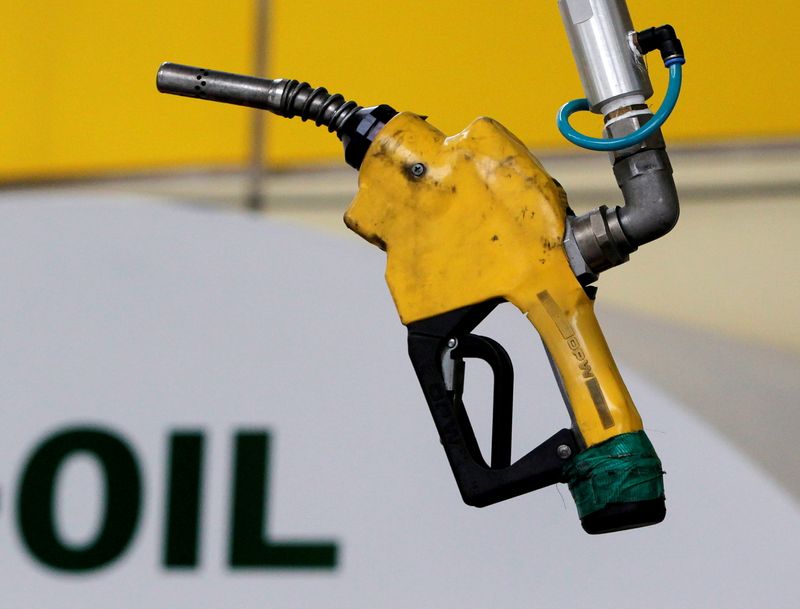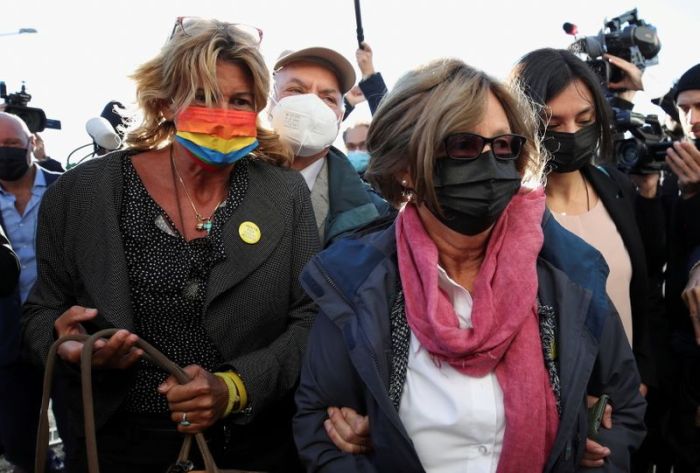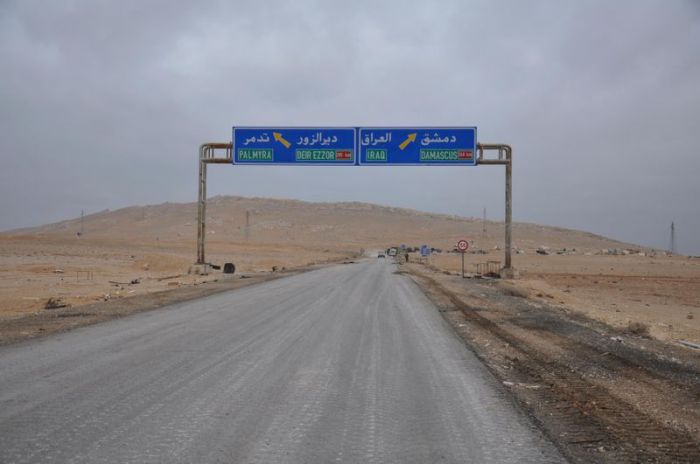By David Gaffen
NEW YORK (Reuters) -Oil prices rose 1% on Thursday after top oil producer Saudi Arabia dismissed calls for additional OPEC+ supply and the International Energy Agency said surging natural gas prices could boost demand for oil among power generators.
The market largely shrugged off an unexpectedly large increase in U.S. crude inventories as refiners cut production in a generally slower period for those facilities.
Brent crude futures settled up 82 cents to $84 a barrel, a 1% gain, and its highest settle since October 2018. U.S. West Texas Intermediate (WTI) crude futures ended up 87 cents to $81.31 a barrel, notching another seven-year closing high.
Oil demand is set to rise by half a million barrels per day (bpd) as the power sector and heavy industries switch from more expensive sources of energy, the IEA said, warning that the energy crunch could stoke inflation and slow world economic growth.
In its monthly report, the IEA increased its global oil demand growth forecast in 2022 by 210,000 bpd, and now expects total oil demand in 2022 to reach 99.6 million bpd, slightly above pre-pandemic levels.
The White House has been in discussions with oil and gas producers about fuel costs, with retail gasoline prices at seven-year highs and winter heating bills expected to rise. It has also urged OPEC+ to raise output.
“The market is fundamentally tight,” said Mike Tran, managing director of global energy strategy at RBC Capital Markets. “Any sort of policy levers that were trying to put a brake on oil market sentiment are a speed bump.”
Saudi Arabia dismissed calls for additional OPEC+ production increases, saying the group’s unwinding of production cuts was protecting the oil market from wild price swings seen in natural gas and coal markets.
OPEC+, the Organization of the Petroleum Exporting Countries (OPEC) and allies led by Russia, has done a “remarkable” job as so-called regulator of the oil market, Saudi Arabia’s energy minister Prince Abdulaziz bin Salman told a forum in Moscow.
At its meeting this month, OPEC+ stuck to its previous agreement to increase output by 400,000 bpd a month.
U.S. crude stocks rose by a surprising 6 million barrels, higher than the 702,000-barrel increase analysts had expected. Production edged higher, reaching 11.4 million bpd. [EIA/S]
U.S. shale producers have been reluctant to invest in raising output after years of weak returns, so U.S. production remains well short of late 2019’s record at nearly 13 million barrels per day. On Wednesday, the EIA said output would rebound to 11.7 million bpd in 2022.
“We’re up to 11.4 million barrels a day and that’s still a very substantial number, but we have an economy that needs more of that and the European Union that needs diesel and gasoline like crazy,” said Tim Snyder, chief economist at Matador Economics in Dallas.
(Reporting by David GaffenEditing by David Gregorio and Kirsten Donovan)



















